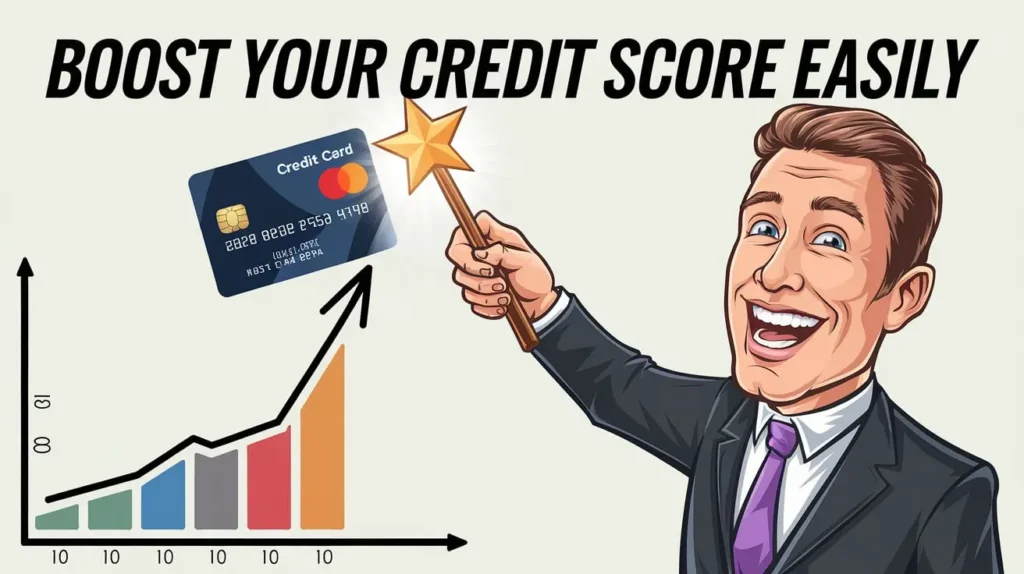Are you struggling with mounting credit card bills and wondering how to get out of debt quickly? You’re not alone. Many people are in a similar situation, but addressing this issue promptly is crucial to avoid further financial strain.
Getting out of credit card debt fast requires a strategic plan and committed effort. The first step to getting out of credit card debt fast is to assess your current financial situation, including understanding how much you owe and to whom.
Next, create a budget that allows you to allocate as much money as possible toward paying off your debts.
How to Get Out of Credit Card Debt Fast: The Snowball and Avalanche Methods Explained
One effective method to get out of credit card debt fast is the “snowball method,” where you pay off the smallest debts first, regardless of interest rates, then move on to the next smallest, building momentum as you go.
Alternatively, the “avalanche method” focuses on paying off debts with the highest interest rates first, saving you money on interest in the long run.
Both methods have their merits and can help you get out of credit card debt fast if used consistently.
Are you struggling with mounting credit card debt and looking for effective ways to break free from this financial burden? You’re not alone.
Millions of Americans find themselves trapped in a cycle of credit card debt, but there’s hope.
This comprehensive guide will show you how to get out of credit card debt fast and regain control of your financial future.
Understanding the Credit Card Debt Trap
Before diving into strategies to get out of credit card debt, it’s crucial to understand how people often fall into this trap.
The Allure of Easy Credit
Credit cards offer convenience and instant purchasing power, making them attractive to consumers.
However, this ease of use can lead to overspending and accumulating debt quickly.
High Interest Rates and Minimum Payments
Credit cards typically carry high interest rates ranging from 15% to 25% or more.
Only minimum payments can result in years of debt repayment and thousands of dollars in interest charges.
The Psychological Impact of Debt
Carrying significant credit card debt can cause stress, anxiety, and even depression.
It’s essential to address debt’s financial and emotional aspects when developing a repayment strategy.
Assessing Your Current Debt Situation
You need a clear picture of your financial situation to get out of credit card debt.
Step 1: Gather All Your Credit Card Statements
Collect statements for all your credit cards, noting the following for each:
- Outstanding balance
- Interest rate
- Minimum payment required
Step 2: Calculate Your Total Debt
Add up the balances on all your credit cards to determine your total credit card debt.
Step 3: Review Your Income and Expenses
Create a comprehensive budget to understand your monthly cash flow.
This will help you identify areas where you can cut expenses and allocate more money towards debt repayment.
Strategies to Get out of Credit Card Debt Fast
Now that you have a clear picture of your debt let’s explore effective strategies to pay it off quickly.
1. The Debt Avalanche Method
The debt avalanche method focuses on paying off credit cards with the highest interest rates first while making minimum payments on other cards.
How it works:
- List your credit cards from highest to lowest interest rate.
- Pay the minimum on all cards except the one with the highest rate.
- Put any extra money towards the highest-rate card.
- Once that card is paid off, move to the next highest-rate card.
This method saves you the most money in interest over time, helping you get out of credit card debt faster.
2. The Debt Snowball Method
The debt snowball method, popularized by financial expert Dave Ramsey, focuses on paying off the smallest debts first for psychological wins.
How it works:
- List your credit cards from smallest to most significant balance.
- Pay the minimum on all cards except the one with the smallest balance.
- Put any extra money towards the most minor balance card.
- Once that card is paid off, move to the next smallest balance.
While this method may not save as much in interest, the quick wins can motivate to stick with your debt repayment plan.
3. Balance Transfer Credit Cards
A balance transfer credit card can be an effective tool to get out of credit card debt by consolidating your balances onto a card with a low or 0% introductory APR.
Pros:
- Can save significant money on interest
- Simplifies payments by consolidating multiple debts
Cons:
- Usually requires good to excellent credit
- It may come with balance transfer fees
- The introductory rate typically lasts 12-18 months
If you choose this option, pay off the balance before the introductory period ends to maximize savings.
4. Debt Consolidation Loans
A debt consolidation loan allows you to combine multiple credit card debts into a single loan, often with a lower interest rate.
Pros:
- Potentially lower interest rate than credit cards
- Fixed monthly payment and repayment term
- Simplifies debt repayment with one payment
Cons:
- May require good credit for the best rates
- Could extend the repayment period
Consider this option if you can secure a loan with a significantly lower interest rate than your credit cards.
For more information on personal loans and when they might be a good idea, check out our article on when personal loans are a good idea.
5. Negotiate with Creditors
Don’t be afraid to contact your credit card companies to negotiate better terms.
What to ask for:
- Lower interest rate
- Waived fees
- Hardship program (if you’re experiencing financial difficulties)
Many creditors are willing to work with customers who show a genuine effort to repay their debts.
6. Increase Your Income
Finding ways to boost your income can accelerate your debt repayment progress.
Ideas to increase income:
- Take on a part-time job or side gig
- Sell unused items
- Freelance in your area of expertise
For inspiration on making extra money, explore our guide on tangible ways to make money from home.
Creating a Debt Repayment Plan
You need a solid action plan to get out of credit card debt.
Step 1: Choose Your Debt Repayment Strategy
Select the strategy that best fits your situation and personality based on the methods discussed earlier.
Step 2: Set Realistic Goals
Establish clear, achievable goals for your debt repayment. For example:
- Pay off $X amount of debt in Y months
- Become debt-free by [specific date]
Step 3: Create a Budget
Develop a detailed budget that allocates as much money as possible towards debt repayment. Our article on how to manage money with a weekly budget can provide helpful tips.
Step 4: Track Your Progress
Regularly monitor your debt repayment progress. Seeing the balances decrease can be motivating and help you stay on track.
Lifestyle Changes to Support Debt Repayment
Getting out of credit card debt often requires adjusting your lifestyle and spending habits.
Cut Unnecessary Expenses
Review your budget for areas where you can reduce spending. Common areas for potential cuts include:
- Dining out
- Entertainment subscriptions
- Premium cable packages
- Gym memberships
Embrace Frugal Living
Adopting a more frugal lifestyle can free up extra money for debt repayment. Consider:
- Cooking meals at home
- Using public transportation or carpooling
- Shopping secondhand for clothing and household items
- Finding free or low-cost entertainment options
For more ideas on saving money, check out our article on 10 ways to save money on a tight budget.
Avoid New Debt
While working to get out of credit card debt, it’s crucial to avoid accumulating new debt. Consider:
- Using cash or a debit card for purchases
- Removing saved credit card information from online shopping sites
- Leaving credit cards at home to avoid impulse purchases
The Role of Credit Counseling
If you’re struggling to manage your debt on your own, credit counselling can be a valuable resource.
What is Credit Counseling?
Credit counselling agencies provide education and assistance with managing debt, creating budgets, and developing financial plans.
Benefits of Credit Counseling
- Professional guidance on debt management
- Potential negotiation of lower interest rates or fees with creditors
- Development of a personalized debt management plan
Finding a Reputable Credit Counseling Agency
Look for agencies accredited by the National Foundation for Credit Counseling (NFCC) or the Financial Counseling Association of America (FCAA).
Avoiding Common Pitfalls
As you work to get out of credit card debt, be aware of potential pitfalls that could derail your progress.
Debt Settlement Companies
Be cautious of debt settlement companies that promise to negotiate with creditors on your behalf.
While some are legitimate, others may charge high fees and damage your credit score.
Payday Loans
Avoid payday loans at all costs. These short-term loans come with extremely high interest rates and fees, often trapping borrowers in a cycle of debt.
Using Retirement Funds to Pay Debt
While tapping into retirement accounts to pay off debt may be tempting, this should generally be avoided.
Early withdrawals can result in penalties and taxes, and you’ll lose out on potential growth for your retirement savings.
Building Financial Health for the Future
As you work to get out of credit card debt, developing habits that will support long-term financial health is important.
Emergency Fund
Start building an emergency fund to cover unexpected expenses and avoid relying on credit cards in the future. Aim to save 3-6 months of living expenses. For more information, read our ultimate guide to emergency fund savings.
Improve Your Credit Score
A better credit score can lead to more favourable interest rates on future loans or credit cards. Learn how to improve your credit score in our comprehensive guide on improving your credit score fast.
Financial Education
Invest time learning about personal finance to make informed decisions about money management, investing, and building wealth. Our article on financial wealth management services can be a great starting point.
Conclusion: Get out of Credit Card Debt Fast
Getting out of credit card debt is a challenging but achievable goal.
By understanding your debt situation, choosing an effective repayment strategy, and making necessary lifestyle changes, you can break free from the burden of credit card debt and build a stronger financial future.
Remember, the journey to become debt-free is a marathon, not a sprint.
Stay committed to your plan, celebrate small victories, and don’t hesitate to seek professional help.
With persistence and the right strategies, you can achieve financial freedom and set yourself up for long-term economic success.
By following the steps and strategies outlined in this guide, you’re well on getting out of credit card debt and taking control of your financial life. Start your journey to financial freedom today!



